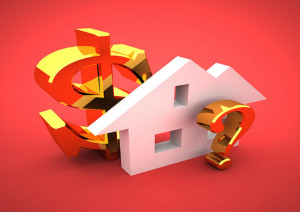How Do I Know Which Loan To Choose?
 When selecting the right loan for your situation, it’s necessary to look at a range of different factors; these range from the types of loans that are generally available, through to the importance of understanding interest rates and your how much your credit score determines what you can borrow. It’s also important to think about what the loan is for, and what options there are if you have bad credit.
When selecting the right loan for your situation, it’s necessary to look at a range of different factors; these range from the types of loans that are generally available, through to the importance of understanding interest rates and your how much your credit score determines what you can borrow. It’s also important to think about what the loan is for, and what options there are if you have bad credit.
Types of Loans
Loans can be divided into several broad categories, which include secured and unsecured loans. A secured loan is generally taken out against something valuable that you own, whether that be a piece of property, a car, or jewellery. The lender can choose to repossess an asset or sell it in order to pay off the loan. Secured loans do produce low interest rates and longer contract terms than unsecured loans, but with a higher risk of losing valuable assets.
Unsecured loans, then, represent forms of credit that don’t use assets, but are instead valued through their rates of interest – this might include a personal loan from a bank, a credit card, or an emergency or payday loan – these loans are worth considering if you need money quickly, and if you can take out a loan off the back of a positive credit score.
Interest Rates and Your Credit Score
How much you can stand to borrow and repay on a loan will depend on interest rates and your credit score. The base rate of interest is set by the Bank of England in the UK, and is currently at 0.5 per cent – most lenders will charge above this for loans, although mortgages can be taken out to match the base rate. In terms of an average loan, you can might pay 5.2 per cent on a £3,000 payment, with 1 year to repay – this 5.2 per cent interest will mean you repay around £230 a month to cover the loan.
Credit card interest rates are also variable, and can go from very low introductory offers to about 18.9 per cent and higher in interest charges per year. Payday loans, which are easy to apply for, but come with the understanding that you make a full repayment with interest at the end of a month, can charge up to 1400 per cent in interest for their quick lending.
The kind of interest rate you have to pay will primarily depend on your credit score, which is worked out through your past borrowing history, as well as through your employment and address history. A negative credit score can result from defaulting on loans, and from consistent periods of time away from work; this can make it difficult to get credit, and can mean that you have to work to rebuild your score with credit agencies such as Equifax, Callcredit, and Experian.
What the Loan is For
Whatever loan you need, remember to consider how much risk you’re willing to enter into – what is the purpose of the loan, and can you realistically expect to make repayments with interest within a given contract? Also, think about what kind of collateral, or assets, that you can afford to gamble with. If you do have bad credit, it’s similarly worth considering approaches that lower your personal risk – getting a loan with a guarantor can be useful, as they agree to make payments on your behalf if you are having problems. Borrowing against the equity in your home can also represent a calculated risk if you need to raise a significant amount of money in a short period of time.












